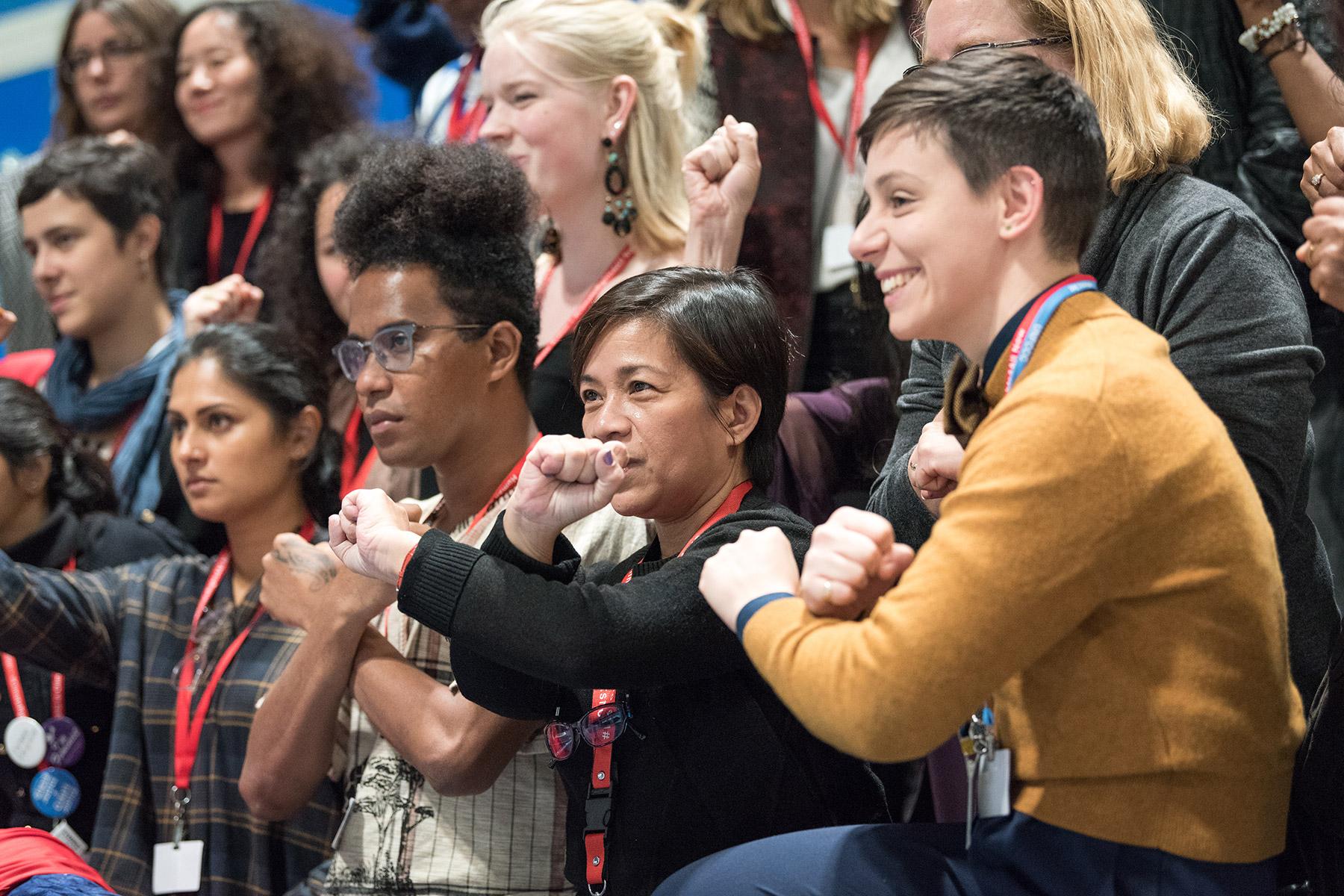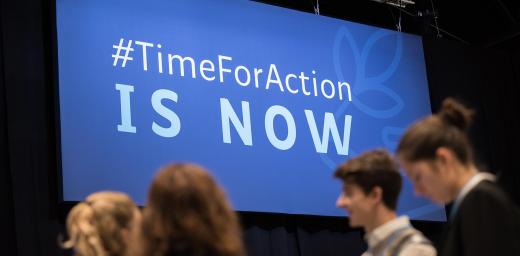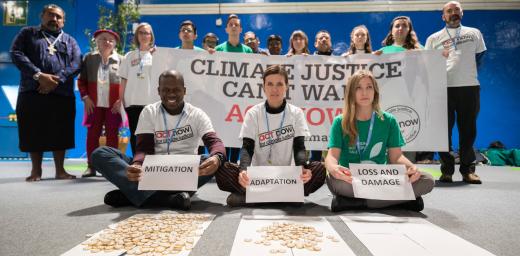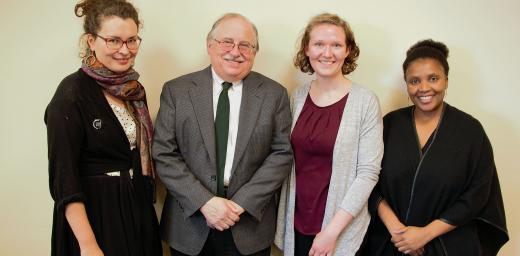COP26: LWF’s youth speak out against injustices in the world

Young people gather for a sit-in demonstration at COP25, in Madrid, Spain, to claim space for a range a groups whose voices are not often listened to in the space of global climate negotiations: youth, women, frontline communities, indigenous communities. Photo: LWF/Albin Hillert
Why LWF advocates for climate justice
(LWI) – “The climate crisis is certainly one of the most important injustices in the world today. And the vulnerable suffer most from its impacts,” says Isaiah Toroitich, Head of Global Advocacy at The Lutheran World Federation (LWF), a few days ahead of the UN climate conference COP26. “We also know that climate change negatively affects other areas where LWF is engaged, such as human rights, gender justice, peace, and humanitarian emergencies.”
In the wake of LWF’s participation at COP26, Toroitich and LWF’s Program Executive for Youth, Savanna Sullivan, explain advocacy priorities and youth involvement at this global event.
A part of LWF’s advocacy portfolio
The LWF approaches advocacy from a justice perspective, hence the focus on action for justice. “We work together with several partners to address injustices that communities face due to the actions or inactions of decision-makers,” explains Toroitich. “A key aspect of LWF advocacy is amplifying the voices of churches and faith communities and connecting our efforts with the human rights approach and theology.”
One example of this is the joint appeal by 40 faith leaders from around the globe, including LWF General Secretary Martin Junge. Ahead of COP26, they joined Pope Francis in signing an appeal to governments and decision-makers, urging them to take more ambitious action and cooperate more effectively to reduce global warming.
Throughout the year, the LWF lifts the voices of people and communities affected by climate change in decision-making platforms such as the United Nations Framework Convention on Climate Change (UNFCCC), United Nations Environment Assembly (UNEA), Human Rights Council, and the UN High-level Political Forum on Sustainable Development (HLPF).
In addition to these activities, young people play a vital role in the LWF’s efforts for climate justice and creation care. “Our contribution to and focus on intergenerational justice, with LWF youth leading our climate justice advocacy and implementing climate projects in their communities and churches, is a significant achievement,” Toroitich underlines.
Youth are key actors in LWF’s climate advocacy
“Today’s young generation has an unprecedented experience of climate change,” says Savanna Sullivan, LWF’s Program Executive for Youth. “It has been at the forefront of the global conversation for most of their lives.” Moreover, climate issues disproportionally affect young people in many ways. For instance, young people themselves will bear the burden of the climate crisis for decades and are often the first to lose their livelihoods in the wake of related disasters.
Against this background, “young people bring imagination and creative solutions to this crisis,” Sullivan notes. “These solutions are often unencumbered by what has been before or what might be possible.” Also, they bring “a unique level of energy and passion to the LWF delegation,” Sullivan recalls the preparatory meetings for COP26.
Having been part of the Evangelical Lutheran Church in America’s delegation to COP25 in Madrid, Spain, Sullivan is aware of the opportunities arising from this engagement. “The experience deeply affected the way I think about climate issues, faith, youth leadership, and advocacy,” she says. “I learned that COP is not just about negotiations or governance.” Although these aspects are crucial, she realized that the vast diversity of the global conversation around the negotiations is also essential.
“I had conversations about eco-theology with young ecumenical and interfaith partners, I learned about contextual climate interventions from panels of indigenous youth from around the world, and I found out how indispensable faith communities are for young people in the global climate justice movement. All of this I also experienced alongside negotiations about climate finance, loss and damages, and adaptation,” Sullivan recalls.
In addition, “all these conversations and perspectives are also extraordinary leadership formation opportunities for young people,” she says. “I felt much more confident returning to my member church and leading this movement with my peers than I had been before I attended COP.”
By LWF/A. Weyermüller
The LWF participates in the 26th UN Climate Change Conference (COP26) which takes place in Glasgow, Scotland, from 31 October to 12 November. This engagement is part of the communion’s ongoing focus to strengthen climate action and advocacy at all levels. Young people are vital agents of change and form the greater part of the LWF’s delegation to COP26.





